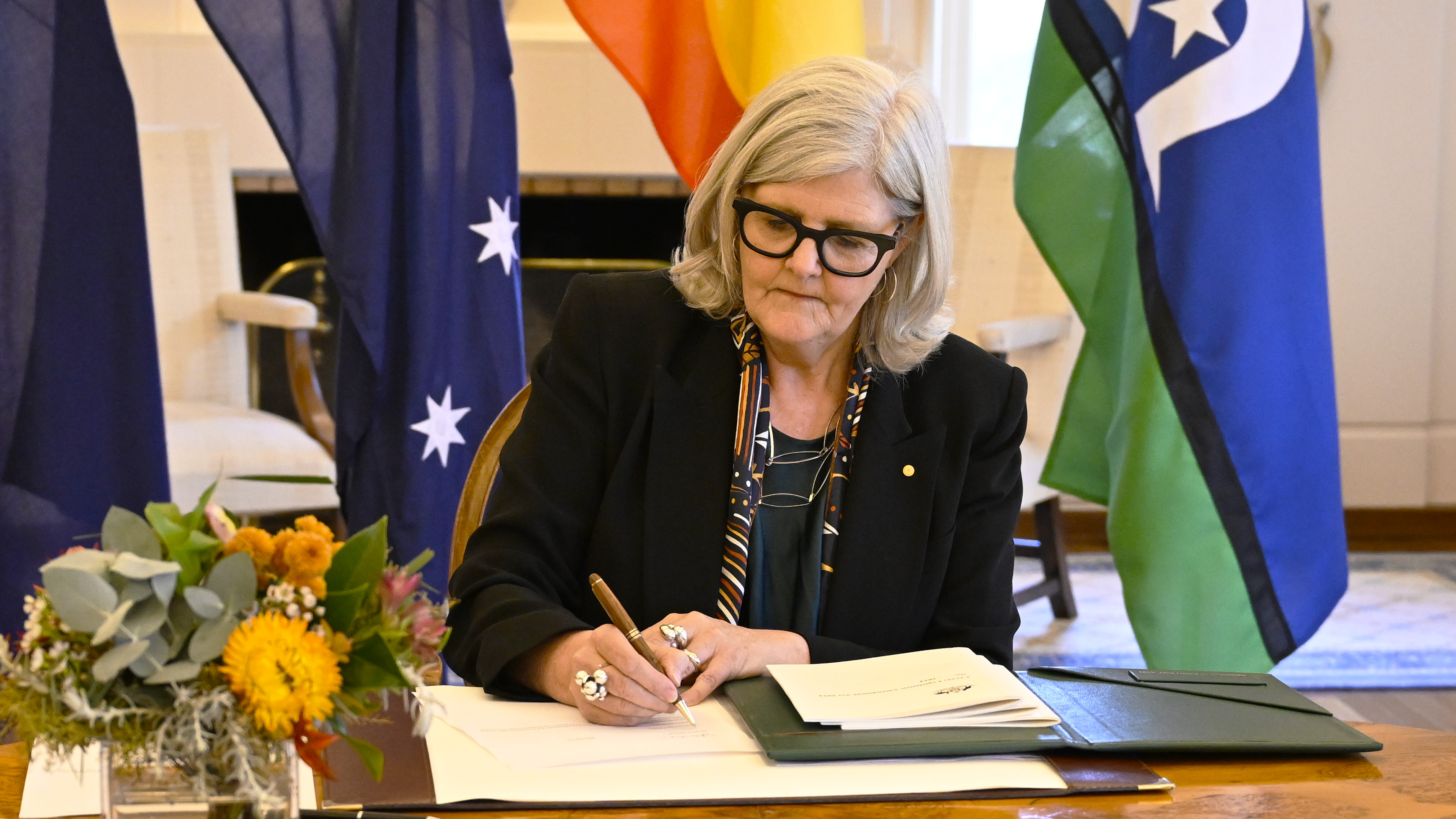Governor-General
The Governor-General is the King’s representative in Australia. This fact sheet explains their role, including their part in the law-making process.
What will I learn?
- The Governor-General represents the King in Australia.
- Many of their decisions are made on the advice of the Government.
- The Governor-General’s role is defined in the Australian Constitution and by tradition.
The Governor-General

The Office of the Official Secretary to the Governor-General
Description
The Governor-General, Her Excellency the Honourable Ms Sam Mostyn AC.
Copyright information
Rob Tuckwell Photography, email rob@robtuckwell.com.au
What is the role of the Governor-General?
The Governor-General

The Office of the Official Secretary to the Governor-General
Description
The Governor-General, Her Excellency the Honourable Ms Sam Mostyn AC.
Copyright information
Rob Tuckwell Photography, email rob@robtuckwell.com.au
The Governor-General is the King’s representative in Australia. Australia is a constitutional monarchy. This means the King is our head of state but does not have unlimited power – he must follow the rules in the Australian Constitution. In Australia, the King gives this responsibility to the Governor-General who carries out the duties set out in the Constitution and those established by convention – tradition.
Acting on advice
It is an established convention that the Governor-General follows the advice of the Government, even though they represent the King. This means the Governor-General acts on the recommendation of the Prime Minister and ministers when carrying out many of their duties.
Ministers are responsible to the Australian Parliament and, through elections, to the Australian people. Following their advice ensures the Governor-General’s actions reflect the views and decisions of the Australian people.
Duties
Many of the Governor-General’s duties are set out in the Australian Constitution. One of their most important jobs is giving Royal Assent to bills – proposed laws – passed by the Senate and House of Representatives. This is the final step when making or changing a law. No Governor-General has ever refused to give Royal Assent to a bill, however, the Governor-General can recommend changes to a bill.
Their other duties outlined in the Constitution include:
The Governor-General signing a bill

Mel Adams/DPS AUSPIC
Description
The Governor-General signing a bill giving it Royal Assent. After a bill is signed by the Governor-General it becomes an Act of Parliament – a law.
Copyright information
Permission should be sought from DPS AUSPIC for third-party or commercial uses of this image. To contact DPS AUSPIC email: auspic@aph.gov.au or phone: 02 6277 3342.
- starting the process for a federal election
- setting times for the meeting of Parliament
- calling a joint sitting of Parliament
- acting as Commander-in-Chief of the Australian Defence Force.
The Governor-General also performs ceremonial and civic duties, such as:
- attending the opening of a new Parliament and making a speech about the Government’s plan
- administering the oath of office to the Prime Minister, ministers, judges and other officials
- attending official events and commemorations
- presenting awards and honours to Australians who have made significant contributions to the community.
The duties that involve the work of the Parliament and Government are undertaken in consultation with the Prime Minister and ministers.
Appointment
The Governor-General is appointed by the King on the recommendation of the Prime Minister. This means the Prime Minister chooses the next Governor-General and lets the King know who he should appoint. They are appointed at ‘the King’s pleasure.’ There is no fixed term, but governors-general are usually given a 5-year term.
Reserve powers
In rare situations, the Governor-General can use reserve powers. These powers are not outlined in the Constitution but come from long-standing conventions about the authority of the King. The use of reserve powers by governors-general is rare and they have only been used a handful of times. The Governor-General’s reserve powers give them the ability to:
- appoint a Prime Minister if an election has not resulted in a clear outcome
- dismiss a Prime Minister if they have lost the support of the majority of members of the House of Representatives
- refuse a request from a Prime Minister to call an election
- refuse a request for a double dissolution
- dismiss a Prime Minister or minister if they break the law.